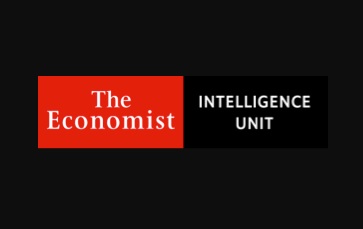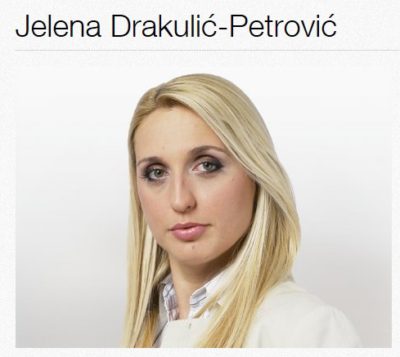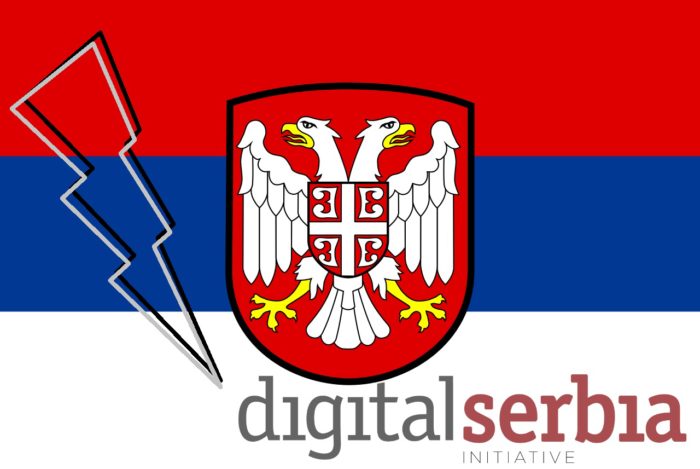Tag Archives: Zurich
Toronto Drops To Sixth As Washington DC Enters World Safety City Index

| Tokyo edges Singapore (2nd) and Osaka (3rd) again to take the top spot globally in 2019.Two North American cities make up the top ten, including Toronto (6th) and Washington, DC, (7th).The remaining top ten cities are: Amsterdam (4th), Sydney (5th), Copenhagen and Seoul (tied 8th) and Melbourne (10th).The 2019 edition of the index includes ten new indicators, of which eight are related to environmental resilience. The Economist Intelligence Unit today releases the third edition of the Safe Cities Index (SCI) at the Safe Cities Summit in Singapore. The index, which is the centre piece of a research project sponsored by NEC Corporation, ranks 60 cities worldwide across five continents. It measures the multifaceted nature of urban safety, with indicators organised across four pillars: digital, infrastructure, health and personal security. Cities in the Asia-Pacific (APAC) region make up six of the top ten safest cities, with Tokyo taking the top spot for the third time in a row. Along with Tokyo, other APAC cities, as in the past, dominate the SCI2019. Singapore and Osaka come second and third, while Sydney and Melbourne also make the top ten. Toronto and Washington, DC, are the highest ranked North American cities in the SCI2019, with Washington, DC, entering the top ten for the first time. Overall, North American cities perform well in digital security, accounting for seven of the top ten cities in this category. These cities include Chicago, Washington, DC, Los Angeles, San Francisco, Dallas, New York and Toronto. Vaibhav Sahgal, consultant at The Economist Intelligence Unit, says: “US cities continue to perform well in digital security as the government strengthens its cyber-security regulations, while Canadian cities tend to fare better than their US counterparts in personal security. None of the cities in the US make it into the top 20 in the personal security category—Washington, DC, only ranks 23rd, together with Shanghai.” The SCI2019 benefits from a major revision designed to better capture “urban resilience”—the ability of cities to absorb and bounce back from shocks—a concept that has had an increasing influence on thinking in urban safety over the last decade, especially as policymakers worry about the implications of climate change. The 2019 edition is the third, following the 2015 and 2017 iterations.The SCI2019 scores are not evenly spread, with a large number of cities clustered at the top, and the rest showing wider variation in scores. Just ten points separate the overall scores of the top 24 cities, while the following 36 are 40 points apart. The research shows that levels of transparency in cities correlate as closely as income with index scores. |
| Research shows that the performance of different safety pillars correlates very closely with each other, signifying that different kinds of safety are thoroughly intertwined. The top performers in each pillar are as follows: Digital security: Tokyo (1), Singapore (2), Chicago (3), Washington, DC, (4), Los Angeles/San Francisco (5)Health security: Osaka (1), Tokyo (2), Seoul (3), Amsterdam (4), Stockholm (5)Infrastructure security: Singapore (1), Osaka (2), Barcelona (3), Tokyo (4), Madrid (5)Personal security: Singapore (1), Copenhagen (2), Hong Kong (3), Tokyo (4), Wellington (5) The leading cities got the basics right, including easy access to high-quality healthcare, dedicated cyber-security teams, community-based police patrolling and/or disaster continuity planning. The accompanying SCI2019 report explores the index results, incorporating 14 in-depth interviews with industry experts around urban safety. Naka Kondo, senior editor at The Economist Intelligence Unit, and editor of the SCI2019 report says: “Overall, while wealth is among the most important determinants of safety, the levels of transparency—and governance—correlate as closely as income with index scores. Our research shows the many ways that transparency and accountability are essential in every pillar of urban security, from building safer bridges to developing the trust needed for relevant stakeholders to share information on cyber-attacks. The research also highlights how different types of safety are thoroughly intertwined—that it is rare to find a city with very good results in one safety pillar and lagging in others. Policies, service planning and provision should also take this into account—and this year, we have decided to convene stakeholders from around the world in a Safe Cities Summit to discuss such matters around urban safety.” |

Digital Serbia Partnership Launches To Set Serbia As Digital Innovation Hub
“Digital Serbia” is the non-profit private partnership initiative launched by Ringier Axel Springer Serbia and leading tech companies. Its mission is to focus on improving the framework and ecosystem required to enable tech entrepreneurship and digital innovation in both industry and education in Serbia. The founding members of the initiative are Infostud, Microsoft, Nordeus, Price Waterhouse Coopers, Ringier Axel Springer, Seven Bridges, Startit, Telekom Srbija and Telenor.
 “Digital Serbia” has been established as an association, bringing leading technology, IT and telecommunication companies together to drive digital innovation for Serbia and for its people. The Steering Committee of “Digital Serbia” will be made up of representatives of the founding companies. The Committee will be headed by Branko Milutinović, CEO and co-founder of Nordeus.
“Digital Serbia” has been established as an association, bringing leading technology, IT and telecommunication companies together to drive digital innovation for Serbia and for its people. The Steering Committee of “Digital Serbia” will be made up of representatives of the founding companies. The Committee will be headed by Branko Milutinović, CEO and co-founder of Nordeus.
All of the association’s activities will be directed towards setting up an improved framework and investment climate to encourage technological entrepreneurship, innovations in the Serbian IT industry and a better level of digital literacy and education in the digital economy. Companies who want to participate in the realization of this goal, and to contribute to Digital Serbia, are invited to join.
“Digital Serbia” has been launched following the success of “digitalswitzerland”, and builds on the efforts of digital hubs such as London, Tel Aviv and Berlin, which joined the digital tech and innovation bandwagon early on.
 Jelena Drakulić-Petrović, General Manager of Ringier Axel Springer Serbia and founder and initiator of the Digital Serbia Initiative: “Technological development brings unprecedented change at a high speed. Innovation in business and education helps to increase productivity. It allows for new solutions in the development of products and services. As a media company, we believe in the importance of enhancing digital innovative strength in Serbia, as this will be the driver that helps to create new jobs and grow our business. With “Digital Serbia”, we are seeking to unlock the vast potential we envisage for the Serbian economy and its people.”
Jelena Drakulić-Petrović, General Manager of Ringier Axel Springer Serbia and founder and initiator of the Digital Serbia Initiative: “Technological development brings unprecedented change at a high speed. Innovation in business and education helps to increase productivity. It allows for new solutions in the development of products and services. As a media company, we believe in the importance of enhancing digital innovative strength in Serbia, as this will be the driver that helps to create new jobs and grow our business. With “Digital Serbia”, we are seeking to unlock the vast potential we envisage for the Serbian economy and its people.”

Branko Milutinović, CEO and co-founder of Nordeus: “Thanks to digitalization, success can now be boiled down to its essence: creativity, know-how and professionalism. This is our opportunity. Together, we will work hard so Serbian innovations and success stories may develop from a stronger foundation and gain more attention. That’s why our decision to invest in digital education and tech entrepreneurship is so important to the future of our entire community.”
“Digital Serbia” will provide basic information and support to innovative companies, as well as small and medium-sized enterprises in the IT sector, on how to operate in these areas, and will provide assistance to companies and society in establishing contacts through various forums and fairs. In addition, “Digital Serbia” will actively participate in identifying and addressing legal restrictions that slow down the development of e-Business in Serbia, and will provide active support for technology startups.
The website www.dsi.rs has been launched with detailed information about the initiative.
Also building on the success of “digitalswitzerland” is the initiative “Digital Poland”, which will be launched on June 1, 2017 in Krakow during the Impact Conference (www.impactcee.com). The initiative will be supporting digitization for the economy, supporting education and the legal system around issues relating to digitization and innovation, and helping companies in Poland to transition from offline to online. For the Silo, Fouzia Hussain.
About “digitalswitzerland”
digitalswitzerland is a joint partnership between businesses, public authorities and the scientific community, which wants to shape Switzerland as the leading international hub for digital innovation. digitalswitzerland is already active in a wide range of fields such as knowledge transfer, education, start-up ecosystems, and political framework conditions. The association includes more than 70 of the most renowned companies and organizations as well as innovative locations throughout Switzerland. The initiative was launched in 2015 by Marc Walder, CEO of Ringier AG. More info can be found at www.digitalswitzerland.com
About Ringier Axel Springer Media AG
Ringier Axel Springer Media AG was founded in 2010 by the Swiss Ringier AG and the German Axel Springer SE. The company operates in the growth markets of Poland, Hungary, Serbia, Slovakia, Estonia, Latvia and Lithuania with a broad range of media services, comprising more than 165 digital and print offerings. The company’s registered offices are in Zurich and it employs a total of about 3100 employees.







